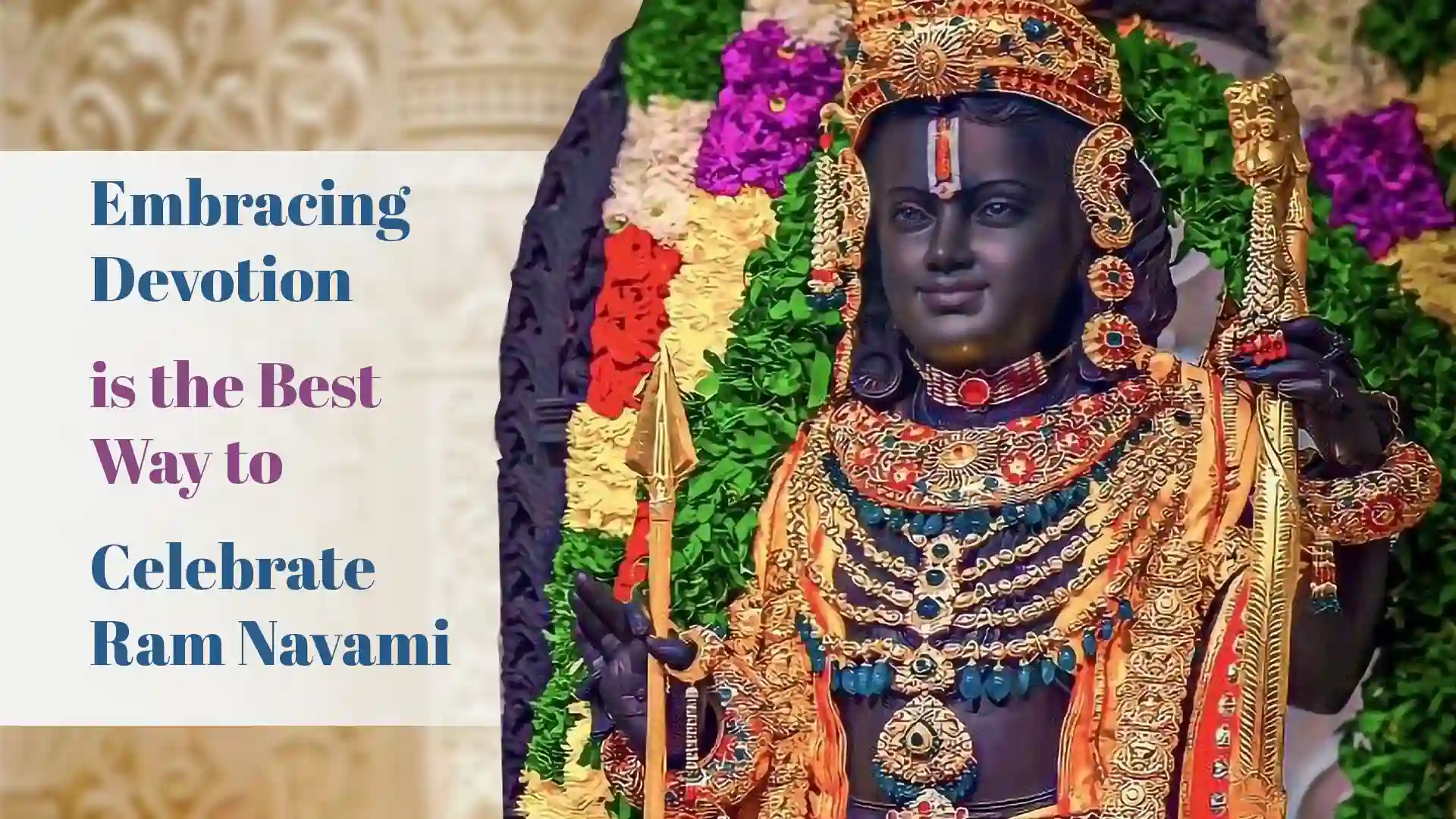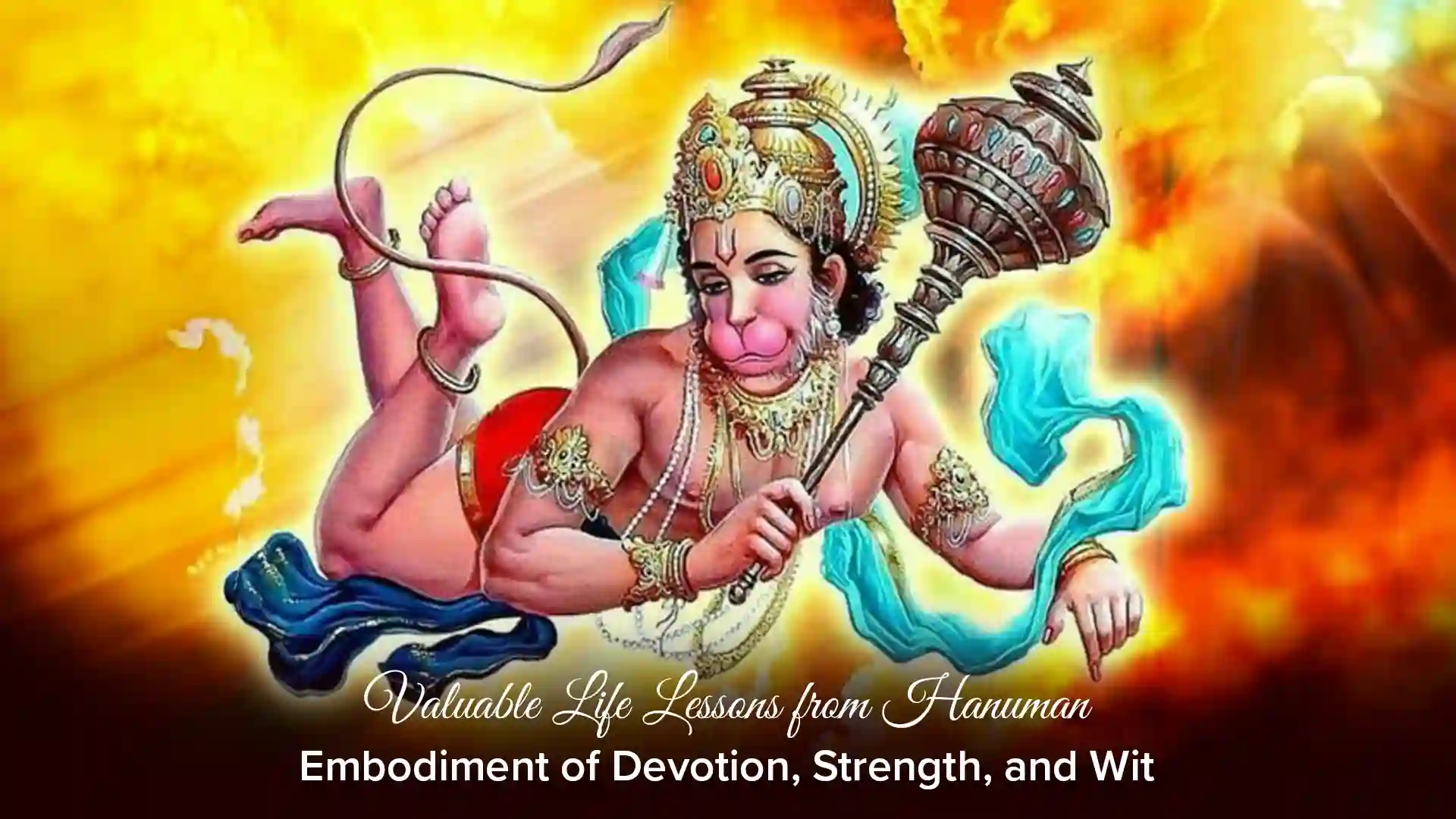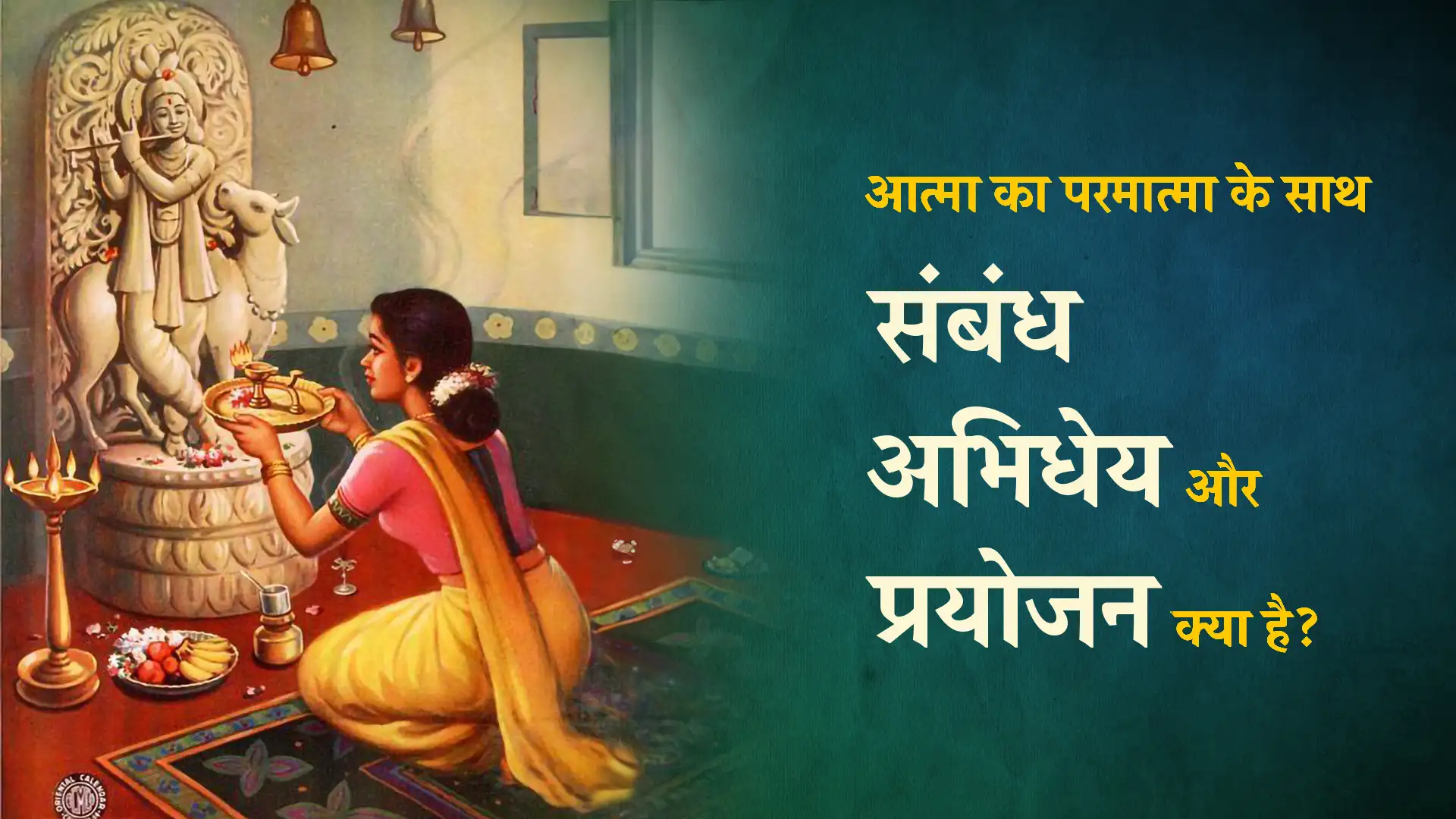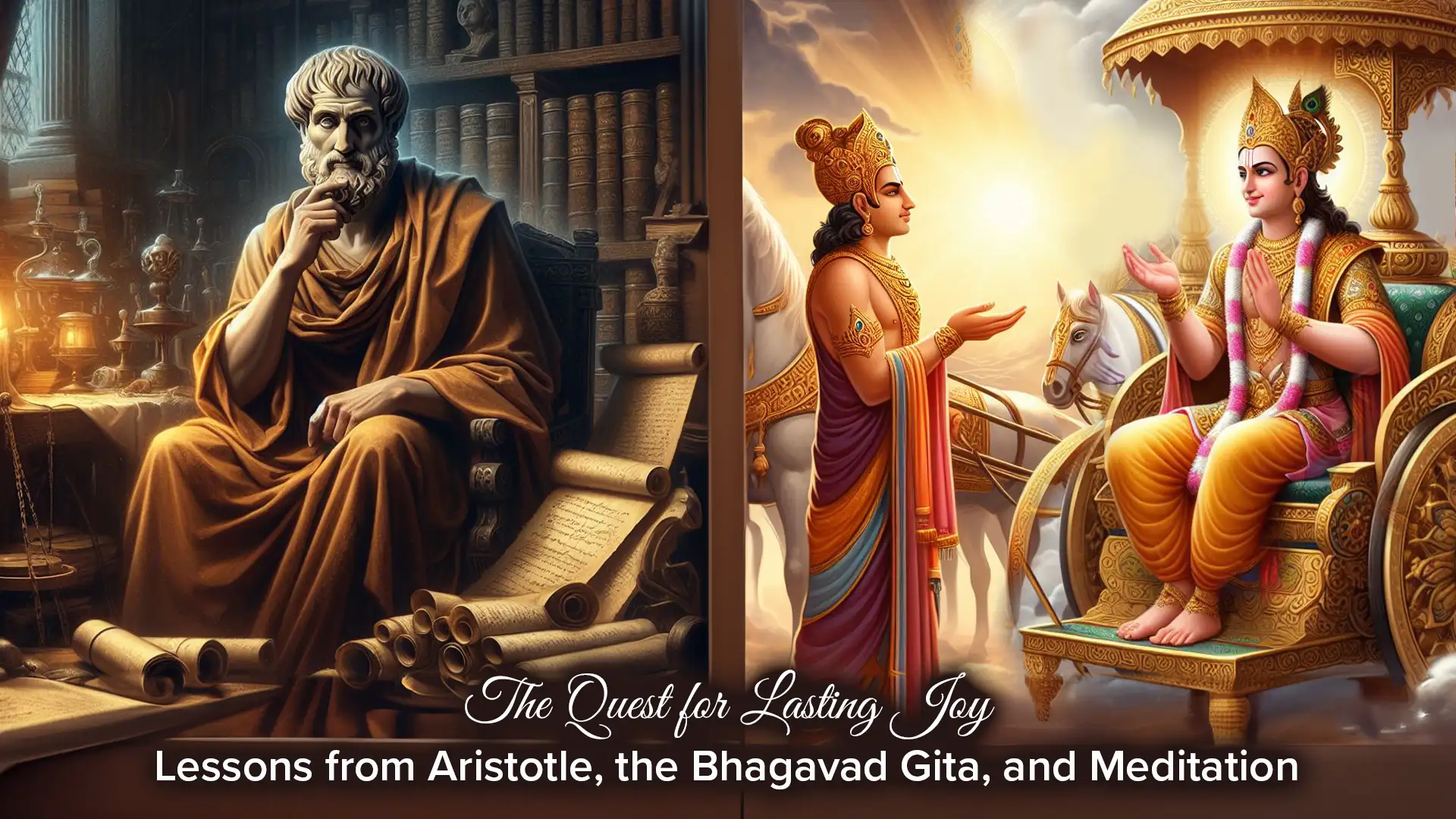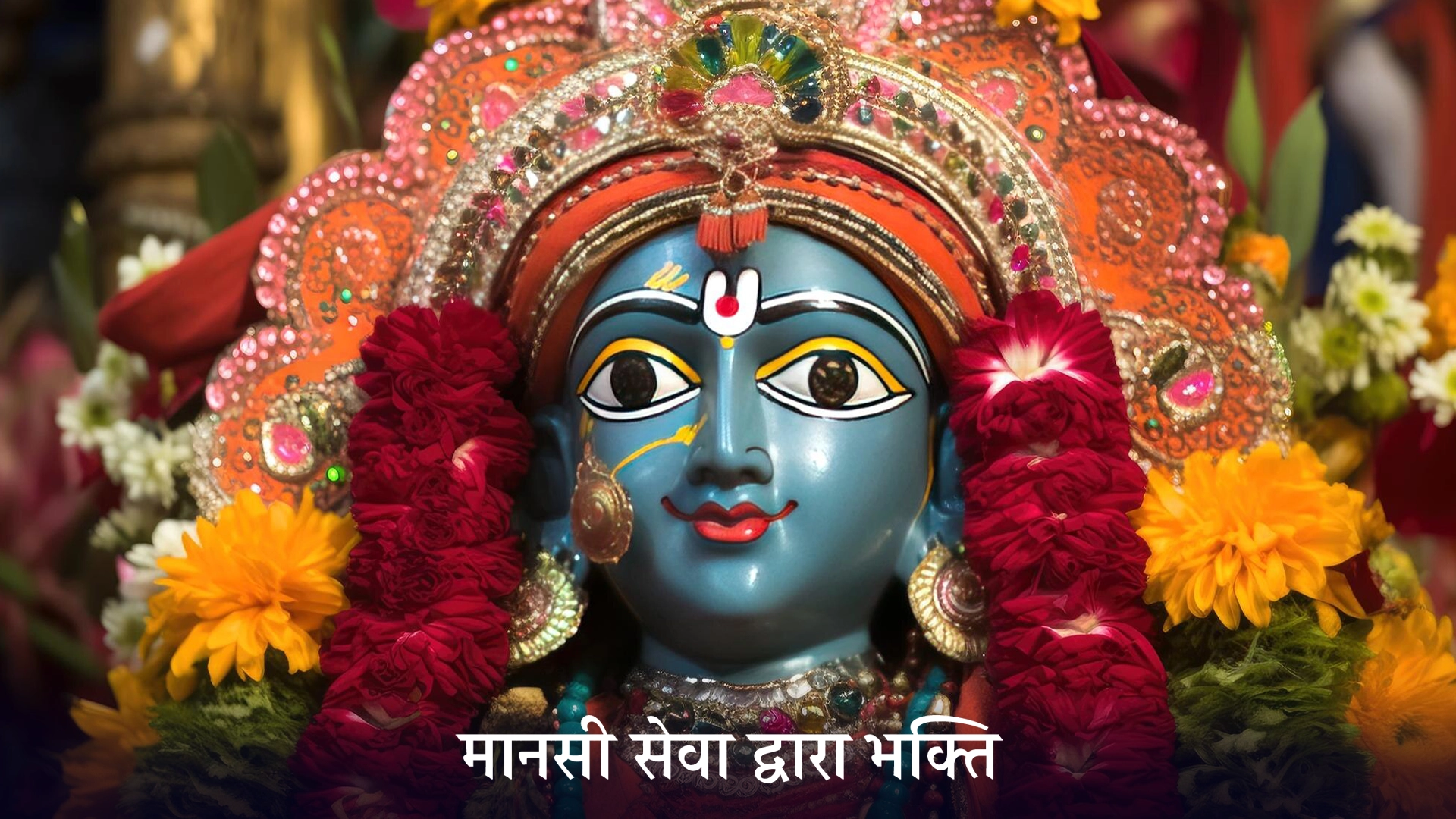In Kaliyug, the age of darkness and moral decline, the most accessible path to attaining the Divine is by chanting God's name. This belief finds resonance in the divine pastimes of Bhagwan Ram and Lord Krishna, who descend to Earth in human form to guide and inspire their devotees.
नहिं कलि करम न भगति बिबेकू । राम नाम अवलंबन एकू ।।
कालनेमि कलि कपट निधानू । नाम सुमति समरथ हनुमानू ।।
nahin kali karam na bhagati bibekū । rām nām avalamban ēkū ।।
kālanēmi kali kapata nidhānū । nām sumati samaratha hanumānū ।।
Meaning: Neither action, devotion, nor knowledge is effective in Kaliyuga; only the name of Ram is a refuge. Kaliyuga is like the demon Kalanemi, who is the storehouse of all tricks; meanwhile, the name of Ram is like Hanuman. As Hanumanji defeated Kalanemi by taking Shree Ram's name, we can also overcome the wiles of Kaliyuga by chanting Ram's name.
The Vedic scriptures describe God, often referred to as Brahman or Brahma, as ajanmā (अजन्मा-one who does not take birth), sarvavyāpak (सर्वव्यापक- omnipresent), and agochara (अगोचर- beyond the reach of our senses). But, the same Brahma assumes human form as Ram or Krishna, engaging in human-like pastimes solely for the sake of his devotees. Despite taking on human form, there is no distinction between the Formless aspect of God and the form He assumes. He transcends maya, the illusion of the material world, even in human form.
However, when God descends in human form, he becomes enveloped in the loving influence of his devotees, temporarily forgetting his own divinity. This divine play is exemplified in Ram and Krishna's lives.
Sati's Doubts and Test of Bhagwan Ram's Identity
Upon seeing Shree Ram, overwhelmed with grief and exhibiting human emotions, seeking Mata Sita's whereabouts in desperation, doubt shrouded Sati's mind. She wonders if this is the same Ram my husband, Mahadeva, always worships in his samadhi. She says:
ब्रह्म जो ब्यापक बिरज अज अकल अनीह अभेद ।
सो कि देह धरि होइ नर जाहि न जानत बेद ।।
Brahma jo byāpak biraj aja akal anīha abhed ।
So ki deha dhari hoi nara jāhi na jānata bed ।।
Translation: "Brahma, who is all-pervading, unbegotten, without parts, free from desire, beyond maya and beyond all distinction and which not even the Vedas can comprehend, can it assume the shape of a man?"
Sati takes the form of Sita Mata and goes to Ram to test him. Ram recognises her and asks, "O mother! What are you doing here alone amid the jungle? Where is Mahadeva?" Sati returns to Mahadev, embarrassed.
Brahma's Bewilderment in Krishna's Pastime
The story of Brahma's bewilderment in Krishna's pastime further illustrates this concept. Witnessing Krishna's intimate interactions with his cowherd friends (Gwāl bāl sakhā/ ग्वाल बाल सखा), Brahma is filled with doubt and tests him by hiding the cowherd friends. Upon returning after a year, Brahma finds Krishna unaffected, having expanded himself to replace the missing friends. Bewildered Brahma falls on the feet of Shree Krishna and sings his glory:
अस्यापि देव वपुषो मदनुग्रहस्य
स्वेच्छामयस्य न तु भूतमयस्य कोऽपि ।
asyāpi deva vapuṣho mad-anugrahasya
svechchhā-mayasya na tu bhūta-mayasya ko ’pi
(Bhagavatam 10.14.2)
Translation: "O Lord, Your body is not made of pañch mahābhūta (पंच महाभूत- the five great elements); it is divine. And You have descended in this form by Your own free will to bestow Your grace upon souls like myself."
In the Bhagavad Gita (9.11), Shree Krishna says to Arjuna:
अवजानन्ति मां मूढा मानुषीं तनुमाश्रितम् ।
परं भावमजानन्तो मम भूतमहेश्वरम् ।।
avajānanti māṁ mūḍhā mānuṣhīṁ tanum āśhritam
paraṁ bhāvam ajānanto mama bhūta-maheśhvaram
Translation: "When I descend in My personal form, deluded persons are unable to recognise Me. They do not know the divinity of My personality as the Supreme Lord of all beings."
The Purpose of Bhagwan Ram's Divine Leelas and Avatars
These divine pastimes are not mere stories but serve a profound purpose. While narrating Ramcharitmanas to Devi Parvati, Bhagwan Shiva emphasises that each avatar of Bhagwan Ram is unique, with distinct leelas and causes. Yet, the common thread among them is the bestowal of divine gifts upon his devotees—his name, form, virtues, and abode. Through these leelas, devotees are guided to transcend bhava-sagar (the ocean of worldly existence) and attain spiritual liberation.
सोइ जस गाइ भगत भव तरहीं । कृपासिंधु जन हित तनु धरहीं ।।
राम जनम के हेतु अनेका । परम बिचित्र एक तें एका ।।
soi jas gāi bhagat bhav tarahīṁ । kṛpāsiṁdhu jan hit tanu dharahīṁ ।।
rām janam ke hetu anekā । param bichitra ek te ekā ।।
Translation: "By singing the glory, devotees cross the ocean of existence. The all-compassionate God takes on a human body for the welfare of His devotees. There are many reasons for the birth of Shri Ramachandraji each more stranger than the previous one."
Mahadeva tells mother Parvati:
एहि बिधि जनम करम हरि केरे । सुंदर सुखद बिचित्र घनेरे ।।
कलप कलप प्रति प्रभु अवतरहीं । चारु चरित नानाबिधि करहीं ।।
ehi bidhi janam karam hari kere । sundar sukhad vichitra ghanere ।।
kalap kalap prati prabhu avatarahi । chāru charit nānābidhi karahī ।।
Translation: "In this way, there are many beautiful, joyful, and extraordinary births and deeds of the Shree Ram. Whenever the Bhagwan incarnates in each yuga (age), He performs various kinds of beautiful pastimes."
Mahadeva repeatedly emphasises that Ram comes to the Earth for the sake of devotees. So much so that at the end, He concludes by saying:
हरि अनंत हरिकथा अनंता । कहहिं सुनहिं बहुबिधि सब संता ।।
रामचंद्र के चरित सुहाए । कलप कोटि लगि जाहिं न गाए ।।
hari ananta harikathā anantā । kahahi sunahi bahubidhi sab santā ।।
rāmacandra ke charit suhāe । kalap koṭi lagi jāhi na gāe ।।
Translation: "Hari is infinite (no one can reach His limit), and His stories are also endless; all saints describe and listen to Him in various ways. Even in millions of ages, the beautiful character of Shri Ramachandraji cannot be entirely sung."
Cultivating an Unwavering Connection with Ram through Devotion
So, what is best for us?
Relish the nectar of God's divine pastimes, take His name, ravel on His divine beauty and immerse entirely in His Love. Our ears should be such as Tulasidas ji says:
जिन्ह के श्रवन समुद्र समाना। कथा तुम्हारि सुभग सरि नाना॥
jinh ke śravan samudra samānā। kathā tumhāri subhag sari nānā॥
Translation: "Whose ears are like the ocean, continuously filled with the beautiful stories of you, resembling many beautiful rivers, but they are never fully satisfied."
As devotees, striving for a deeper connection with Ram is important. We should always remain open to receiving His grace through all our senses and never become complacent or satisfied. We should tune our ears to listen to the enchanting stories of His divine play and fill our eyes with longing for the blissful sight of His divine form. We can deepen our Devotion and strengthen our connection with Ram by cultivating these aspirations.
As we celebrate the auspicious occasion of Ram Navami, it becomes imperative to take a moment to deeply contemplate and reflect upon the divine name, form, and leelas of Bhagwan Ram. By meditating upon His divine qualities and attributes and seeking His grace and love, devotees can confidently navigate through the various challenges and obstacles that come their way in Kaliyuga and progress steadily on the path of spiritual enlightenment. Ultimately, through the unwavering Devotion and remembrance of the divine, one can transcend the limitations of the material world and attain union with the Supreme Being. This spiritual journey leads to a state of ultimate bliss and eternal happiness, which is the ultimate goal of every soul.

